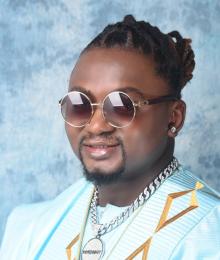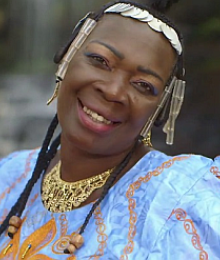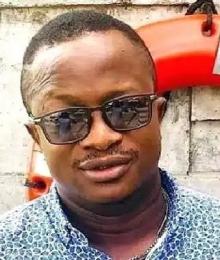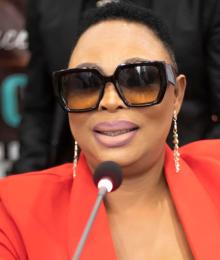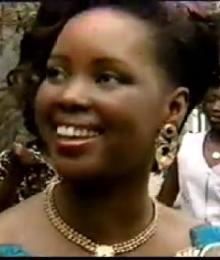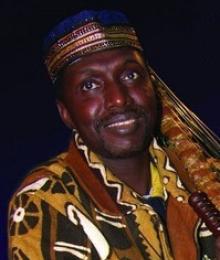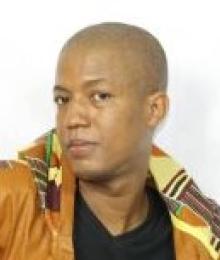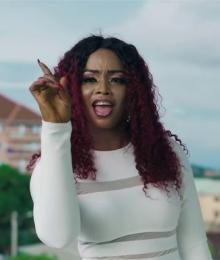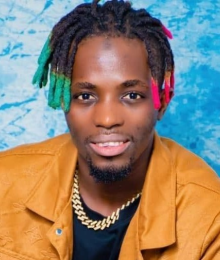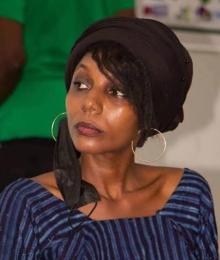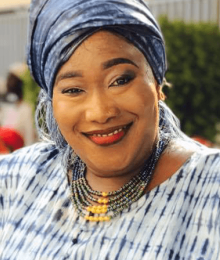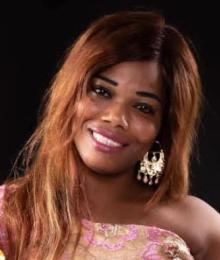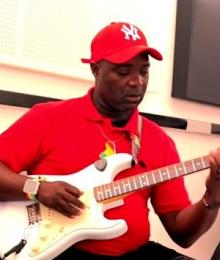
Djékoria Mory Kanté is an exceptional Guinean guitarist and arranger, born in 1972 in Mana Farabana into a family of griots. His impressive musical journey includes traditional training in the balafon and guitar, followed by an international career marked by his legendary collaboration with Mory Djély Deen Kouyaté and his work with artists such as Tiken Jah Fakoly and Mory Kanté.
A highly respected virtuoso known for his personal discipline and innate musical talent, he perfectly embodies the fusion of Manding tradition and contemporary music. He has brought Manding guitar to global stages before returning to Guinea in 2020, where he continues his musical work.
Introduction
Djékoria Mory Kanté is one of the most talented guitarists and arrangers on the Guinean music scene. Born in 1972 in Mana Farabana, in the sub-prefecture of Mana Mamouroudou (Kankan), he comes from a lineage of griots on both his paternal and maternal sides. His exceptional musical journey, built between tradition and modernity, perfectly illustrates Guinea's rich Manding cultural heritage.
Origins and Family
The son of the late Babou and the late Djékoria Diabaté, Djékoria Mory was born into an environment where music was omnipresent. His father, a famous guitarist and singer known in his region, passed on this passion to him from an early age. His very name is a tribute to his maternal grandfather, Famoro Konkoba, a great balafon player who lived in Tokounou.
Although his uncle Djénèbô Kanté tried to send him to school, Djékoria Mory's musical destiny quickly took over. After only three years of primary school, he left the classroom to devote himself to learning the balafon under his grandfather from 1980 to 1982, and later the guitar with his blind uncle, Djènè Djomba, known as "Jo Ballard," a renowned guitarist in Tokounou.
Early Career
In August 1989, Djékoria Mory arrived in Conakry to stay with his uncle Djénèbô Kanté in the Coleah neighborhood, where he continued his guitar training. In the capital, he had the opportunity to study under great masters such as Djessou Mory Kanté (who later became Salif Keita's guitarist) and Papa Diabaté, son of the late El Hadj Sidikiba Diabaté, of whom he was the last student.
The year 1990 marked a decisive turning point in his career when he met Mory Djély Deen Kouyaté, who had just returned from Paris. This meeting, facilitated by the friendship between his father and Mory Djély, led to an exceptional musical collaboration and an unbreakable friendship. Despite initial reluctance from his family, Djékoria Mory chose to follow Mory Djély, becoming his dedicated guitarist.
The bond between Djékoria Mory and Mory Djély Deen Kouyaté extended far beyond the professional sphere. Together, they formed a duo of rare musical symbiosis. Djékoria Mory described their special relationship: "On stage, there was a rivalry between us, which he expressed in these terms: 'N'toma, here you are Kèmè Bourema, who arranges everything, and I am Samory, who commands everything.'"
Their first album, recorded at JBZ Studio in Abidjan, included songs like "Gnarigbassa," "Djélikè dondon," "ATT" (Amadou Toumany Touré), "Rougui Baldé," and "Dalo Kanté," already showcasing Djékoria Mory's talent as a solo guitarist. They later collaborated on several other albums, including one dedicated to Harouna Conté in 1995, and a final one produced in collaboration with Jean Philippe Rykiel between 2013 and 2014.
International Career
Djékoria Mory Kanté's talent took him far beyond Guinea's borders. In Côte d'Ivoire, he worked with Malian singer Ami Koita, the Ivorian group "AKE," and the renowned reggae artist Tiken Jah Fakoly for his album "Le Balayeur balayé." He lived in Abidjan for nearly a year working with the CDS production house of Mamadou Cellou Diallo, arranging albums for many artists.
In 2003, he toured the United States with Amadou "accordion" Barry, where he stayed for two years. There, he worked with kora player Mamadou Diabaté, also known as "Djélikè Dian," and arranged two albums, including one for Abdoulaye Diabaté, brother of the late Kassé Mady Diabaté.
His journey then took him to France in 2007, where he settled for more than ten years. There, he joined the band of "electric griot" Mory Kanté as a solo guitarist, replacing a European musician. This experience marked a new chapter in his career: "This band operates at the highest level, and adapting to its rhythm is not easy. There is discipline, expertise, and professionalism—nothing is left to chance."
With Mory Kanté, he participated in two albums, "La Guiniénne" and a traditional album produced by an American, and performed on stages worldwide.
Return to His Roots
In February 2020, Djékoria Mory returned to Guinea to be with his ailing mother, who passed away shortly after his arrival. Since his return, he has joined the group "Allalakê International," created by his uncle El Hadj Mamady Sidimé "Capi," while continuing his work as a musical arranger.
Musical Legacy
Beyond his skills as a guitarist and arranger, Djékoria Mory Kanté stands out for his personal discipline and respectful approach to music. Having "never smoked or touched alcohol," he attributes his exceptional musical abilities to "a calm mind, attentive listening, a well-developed musical ear, and a strong memory."
His vision of music deeply reflects his griot roots: "We are griots, born into music. Many of us did not attend formal music schools. Rest assured, music is innate in us; it runs in our blood."
Djékoria Mory Kanté's journey perfectly illustrates the richness and vitality of the Manding musical tradition while demonstrating his ability to adapt and evolve in various international musical contexts. His story is that of a guardian of tradition who has brought Manding guitar to the world's stages alongside the greatest names in contemporary African music.











